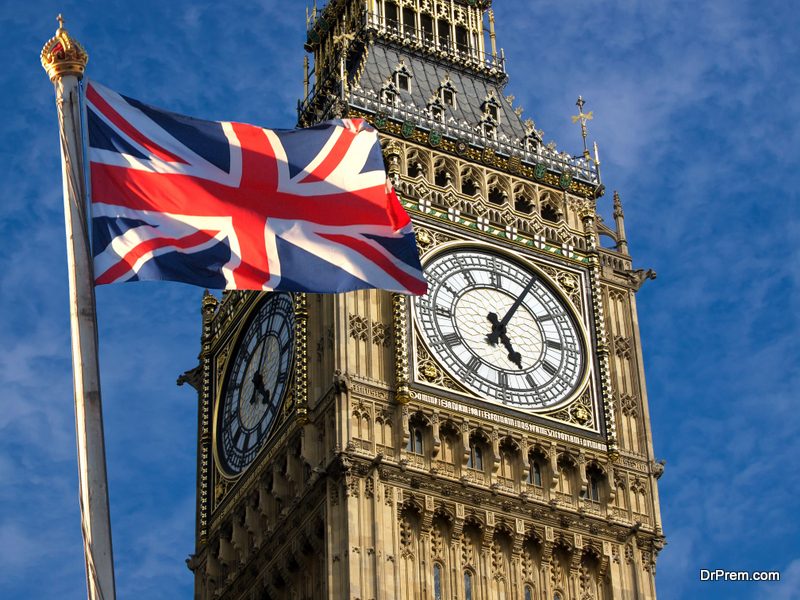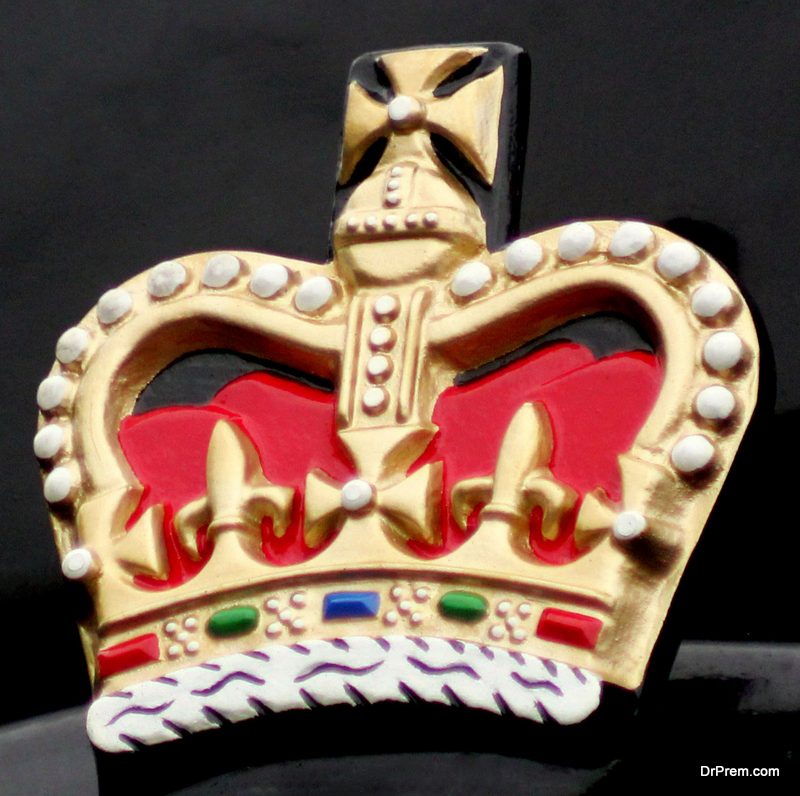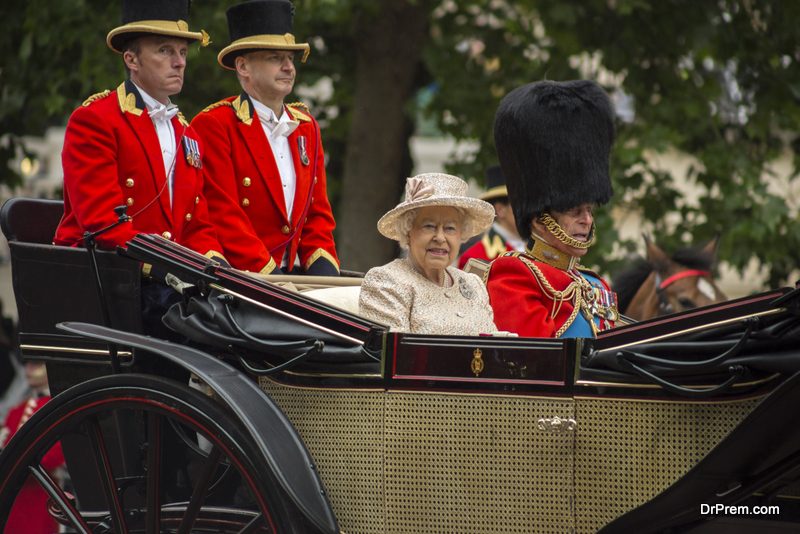British monarchy is as old as time. While one cannot deny that old is gold; in a world that moves ahead with speed, old is boring. Even though the British monarchy has succeeded in reinventing itself over time, has it done enough to survive and thrive in the years to come? The more important question is – Can Britain survive without The Crown? Experts have their say on the royal debate of the century – Should British Monarchy Be Abolished?
Should British Monarchy Be Abolished? – The economic perspective
 Monarchy is in stark opposition to democracy and ‘meritocracy’. Imagine if all the heads of every country in the world followed the same ruling structure as the one the Queen follows. Barrack Obama wouldn’t end his Presidential term or step down from contesting Presidency in the USA. He would remain the President of the United States till he breathes his last. And guess who would assume the Presidential position after his demise? His eldest daughter – Malia Obama. Americans certainly will not tolerate this nepotism. Then why should (or does) Britain tolerate it?
Monarchy is in stark opposition to democracy and ‘meritocracy’. Imagine if all the heads of every country in the world followed the same ruling structure as the one the Queen follows. Barrack Obama wouldn’t end his Presidential term or step down from contesting Presidency in the USA. He would remain the President of the United States till he breathes his last. And guess who would assume the Presidential position after his demise? His eldest daughter – Malia Obama. Americans certainly will not tolerate this nepotism. Then why should (or does) Britain tolerate it?
Supporters of The Crown might claim that this argument is void as the Queen no longer ‘rules’ or ‘runs’ Britain. However, the Queen still has more power clenched up in her fists than required. Here is what the Queen can effectively do by using her title and her crown – wage wars, dissolve the British Parliament, and choose to sign or ignore important political treaties. In such a scenario, the Queen apparently – even if in partnership with the British Prime Minister – runs Britain.
The debate on monarchy finds a valid point in claiming the British royal family to be as secretive as possible. The British monarchy lobbied in 2012, with successful results to be left out of the Freedom of Information Laws. Not only that, it survives on government funding that was accounted to be around $2 million annually (in 2012).
Monarchy might be good for the British economy in terms of bringing in tourism revenue. However, the hereditary system of running a country is snatching away money from common British taxpayers time and again to thrive in a world that no longer wants a hierarchical structure. In such a world, the British monarchy will be sidelined sooner or later.
Royalists and their argument in favour of the British royal family
A website known as IPSOS – MORI is involved in tracking the British opinion on the Crown since 1995. Over the last 20 years, the British opinion on the same has remained consistent. 3 out of 4 people prefer to see The Crown placed rightfully on the head where it deserves to be. A staggering amount of British population chose the Institution over the Republic.
The royalists take delight in the fact that there is a low demand for change in the way Britain functions. The British royal family is also subject to a lot of affection by the common population. Plus, when it boils down to it, the Crown probably does more good than harm to the social, cultural, and economic conditions of Britain. The British royal family is instrumental in bringing a great amount of tourism revenue. The Queen herself effortlessly does some brand management on her international tours.
For the royalists, its great news! And if it is genuine news, then this is the question. Should British Monarchy Be Abolished? Maybe not.
The Crown and its vast, unchallenged powers
 There is a fact about the Crown that love or hate cannot change. The fact is that The Crown is the ‘Supreme’ authority in Britain. Which means, The Crown and its powers cannot be challenged or sued in any court in Britain. Whether you like it or not, The Crown has vast, unchallenged powers. Since it does, The Crown can prove to be either a blessing or a threat – depending on how it chooses to use its powers.
There is a fact about the Crown that love or hate cannot change. The fact is that The Crown is the ‘Supreme’ authority in Britain. Which means, The Crown and its powers cannot be challenged or sued in any court in Britain. Whether you like it or not, The Crown has vast, unchallenged powers. Since it does, The Crown can prove to be either a blessing or a threat – depending on how it chooses to use its powers.
Despite the (almost) unlimited power that the Queen exercises over the British administration, questions of her leadership has arisen time and again. After 6 decades of being a monarch, one fails to find a moment in modern British history where the Queen may have recited a speech worth remembering or exhibited powerful leadership in moments of crisis. The best example for this was in 1997 – when Lady Diana’s death caused a wave of mourning across the world – but the Queen was MIA for a couple of days before finally making a brief appearance with her tribute speech on television.
For all the powers bestowed upon monarchy, it has failed to fulfill its responsibilities in times of need. However, it cannot be denied that the Queen has made public appearances whenever the public demanded it. At this point, the Queen is doing what is required of her to do. It is no wonder that she has been a public favorite for the last 60 years or more.
The British monarchy isn’t all about the Queen
Unfortunately, the British monarchy isn’t just about Queen Elizabeth II. This is precisely what has sparked up the debate on monarchy. The Queen has nurtured the British monarchy like a baby and turned it into a successful concept. But what happens to it after Queen Elizabeth II breathes her last?
Next to the line in throne is either Prince Charles or Duke William. Can either of them sustain the status of the British royal family or more importantly, the British monarchy in a world that is not ready to tolerate any more political or economic blunders? Only time will tell.
However, a more practical solution doesn’t ask the world to wait and watch whether the British monarchy can thrive without the face and guidance of the Queen. The key is in not abolishing the British monarchy entirely, but by transferring the constitutional powers to the people of Britain from The Crown. In one sense, this ends up in making the next monarch of Britain does not wear the crown due to hereditary succession, but by his/her ability to uphold the welfare of the people of Britain.
The debate on monarchy is more about whether the monarchy can contribute effectively and efficiently to Britain’s future – especially in face of Brexit. With some major changes in the role and responsibilities of a monarch – it certainly can.




